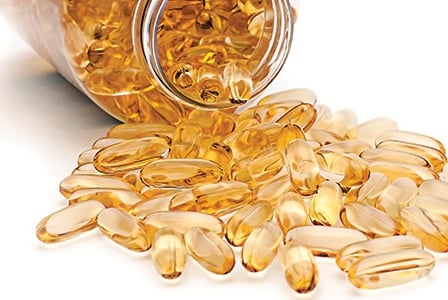
Male problems can account for up to 50 percent of infertility. Fortunately, natural strategies can help.
Many couples struggle with fertility challenges, or subfertility. Among these, male problems have been estimated to account for up to 50 percent of infertility. Fortunately, a number of well-studied natural strategies have been shown to benefit parameters related to sperm health.
Diet
The Mediterranean diet, characterized by high intake of fish, chicken, fruit, vegetables, legumes, and whole grains, has been associated with improved sperm motility. Adherence to this diet was associated with an 11 percent higher number of progressively motile sperm (meaning sperm that move in a forward direction), compared with men who did not adhere to this diet.
Another study found that consuming about half a cup of raw walnuts per day for 12 weeks, in addition to a typical Western diet, was associated with improvements in sperm vitality, motility, and shape. Walnuts are rich in omega-3 alpha-linolenic acid, which may explain their benefits.
On the other hand, intake of trans fat has been associated with reduced sperm in otherwise healthy men, with a reduction of about 50 percent in sperm counts among men with the highest intake of trans fat.
Coenzyme Q10
A recent study administered 200 mg of coenzyme Q10 (CoQ10) daily for three months to infertile men with oligoasthenoteratozoospermia (OAT), a combination of low sperm count, low sperm motility, and a low percentage of sperm with a healthy shape. CoQ10 increased semen levels of antioxidant enzymes, and semen CoQ10 concentration was correlated with normal sperm shape.
A second study administering 200 mg for 26 weeks to men with OAT found that CoQ10 was able to improve sperm concentration, motility, and shape.
Omega-3s
Omega-3 eicosapentaenoic acid (EPA) and docosahexaenoic acid (DHA) have also been shown to improve sperm parameters. In a randomized controlled trial, 238 men with OAT were given a placebo or approximately 2 g of combined EPA and DHA for 32 weeks. In the omega-3 group, sperm count and sperm cell concentration increased significantly.
L-carnitine
Finally, L-carnitine has been thoroughly studied for its effect on sperm motility. One study evaluated the effect of L-carnitine supplementation, 1 g three times daily for three months, finding that L-carnitine improved the percentage of motile and normal-shaped sperm.
In another study, men with low sperm motility were given L-carnitine and experienced an improvement in the percentage of progressively motile sperm.
Both specific dietary factors and natural health products including CoQ10, omega-3 fatty acids, and L-carnitine have been demonstrated to benefit parameters associated with male fertility.
